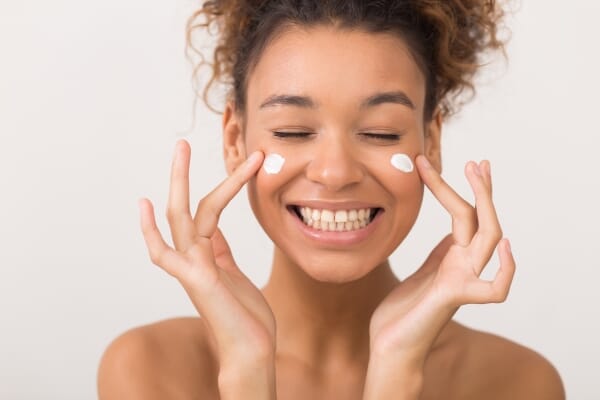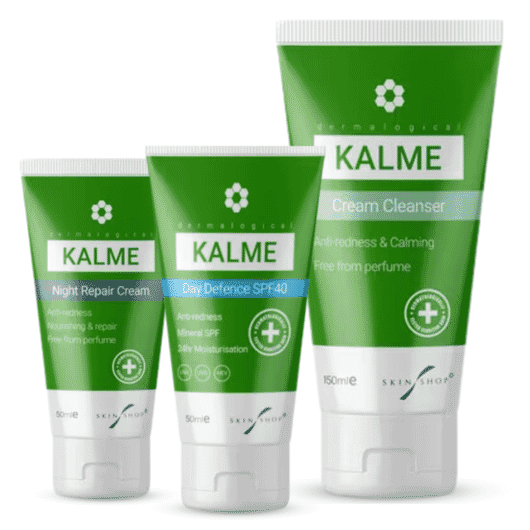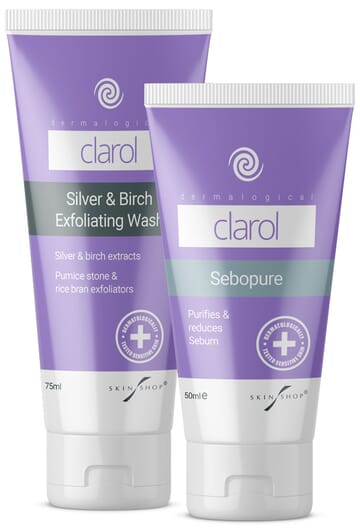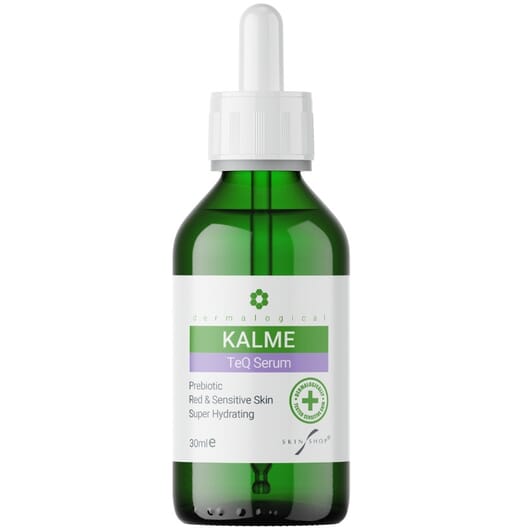Traditional skin care advice is to wash your face every day, sometimes twice a day, to avoid skin problems such as acne and greasy skin.
However, washing your face every day can cause more harm than good, even if you suffer from acne.
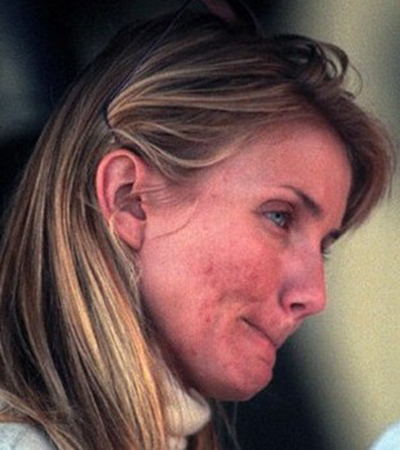
Hollywood actor Cameron Diaz recently admitted to almost never washing her face. Cameron has claimed to suffer from acne and rosacea so she may be doing the best thing for her skin according to dermatologist Dr Eva Melegh.
Here Dr Melegh gives five reasons why washing your face every day isn’t necessarily the key to clear, calm and glowing skin.
-
Washing your face daily does not reduce greasiness
Sebum is an oily, waxy substance produced by your body's sebaceous glands. It coats, moisturises, and protects your skin. We need sebum for healthy skin.
People who suffer from hormonal acne, teen acne or adult acne often produce higher levels of sebum. This can be due to genetics and hormonal disruptions such as puberty, or in women pregnancy or menopause. Stress can also increase sebum production.

Washing your face more often with detergents and solvents often present in facial washes and cleansers for greasy skin removes the natural oils from the skin’s surface, leaving it drier and so will often cause the body to produce even MORE sebum to compensate.
Facial cleansing with a non-comedogenic facial cleansing oil followed by gentle exfoliation once every 1-2 days is better than washing daily with facial washes aimed at dissolving grease. Try Clarol Silver & Birch Exfoliating Wash
-
Washing your face daily does not stop acne forming
It’s a misconception that it’s the excess sebum itself that causes acne, it’s not and so washing your face daily to reduce the sebum is not getting at the root cause of the acne.
It’s the oxidisation of sebum when it nears the skin’s surface and mixes with air and external bacteria that can cause the sebum to go ‘rancid’ and pool in the skin pores causing blockages and inflammation that leads to pimples and acne.
So the key to reducing acne is keeping the sebum from oxidising, not simply trying to wash it away with facial washing.
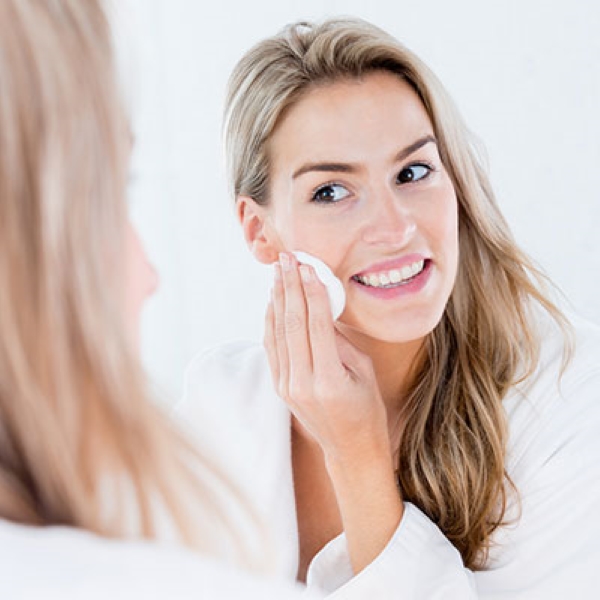
Products that are sebum ‘preservatives’ help keep the sebum from becoming contaminated as it passes out through the skin pore. This results in the skin remaining protected and moisturised by the sebum without it getting oxidised and going rancid which is what leads to pore blockages.
Incidentally if sebum is left to flow freely and not being constantly washed away, the end result will be that gradually the body will regulate itself and start producing less sebum.
The paradox is often that people with greasy skin and acne immediately start off by washing their skin more, which in turn actually increases sebum production.
Cleaning skin using a gentle exfoliant once a day and follow it with a sebum purifying serum is a better way to control sebum production and help prevent pimples and acne forming. Try Clarol Sebopure
-
Washing your face daily can make rosacea worse
If you suffer from rosacea and sensitivity, washing your face with water can actually make the condition worse.
Water is a very caustic substance that also contains chlorine and so if you have very sensitive skin prone to rosacea this alone can trigger skin flares.

But equally importantly it’s the temperature difference of using either warm or cold water to wash your face that can also trigger a rosacea skin flare due to the vascular dilation of the blood cells below the skin’s surface.
Water-free cleansing with a moisturising cream-cleanser for very sensitive skin is much more beneficial for skin prone to redness and rosacea than daily facial washing. Try Kalme Water-Free Cream Cleanser
-
Washing your face daily can remove good bacteria making dry skin even drier
Like the stomach our skin contains good and bad bacteria. It’s the bad bacteria that can lead to inflammation and acne. However, it’s the good bacteria that protects and maintains the skin barrier, which is what keeps bad bacteria out and also locks in moisture and prevents dryness.
Most facial washes contain anti-bacterial agents aimed at killing off harmful bacteria. However, this bacterial ‘wipe out’ approach also kills off good bacteria too. This can lead to problems for all skin types, but especially skin prone to dryness and eczema.
The skin barrier is crucial for keeping skin moisturised and supple. People who are prone to eczema often have a genetically compromised skin barrier function. So killing off the good skin bacteria that helps to repair a damaged or compromised skin barrier will only make matters worse.
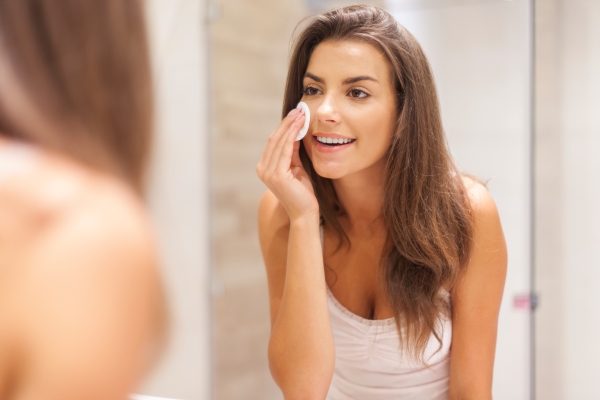
If you suffer from dry skin, washing your face daily can lead to even more dryness.
The best way to clean skin prone to dryness and eczema while protecting the skin barrier is with an oil-based cleansing product or a water-free cream cleanser with moisturising agents followed by a skin serum containing prebiotics to feed good skin bacteria, especially if used overnight which is when skin cell re generation is most active. Try Kalme TeQ Serum with agave prebiotics
-
Washing your face daily can make open pores worse
Open pores and blackheads can be caused both by genetics but also by a lack of elasticity and collagen production in the skin itself.
Stripping away essential skin oils through daily facial washing can make the skin less elastic and so leave pores more open.

It’s much better to gently exfoliate normal skin once every 2-3 days or greasy skin every 1-2 days in order to clean out open skin pores than to wash facial skin every day. Exfoliation speeds up skin cell regeneration, whereas facial washing with anti-bacterial washes dries out skin and reduces elasticity.
The best combination for open pores is exfoliation once every few days for normal to dry skin or once a day in the most affected areas for greasy skin followed by daily toning with a gentle pore minimizing toner to remove surface dirt. Try Clarol Birch Water Pore Minimising Toner



